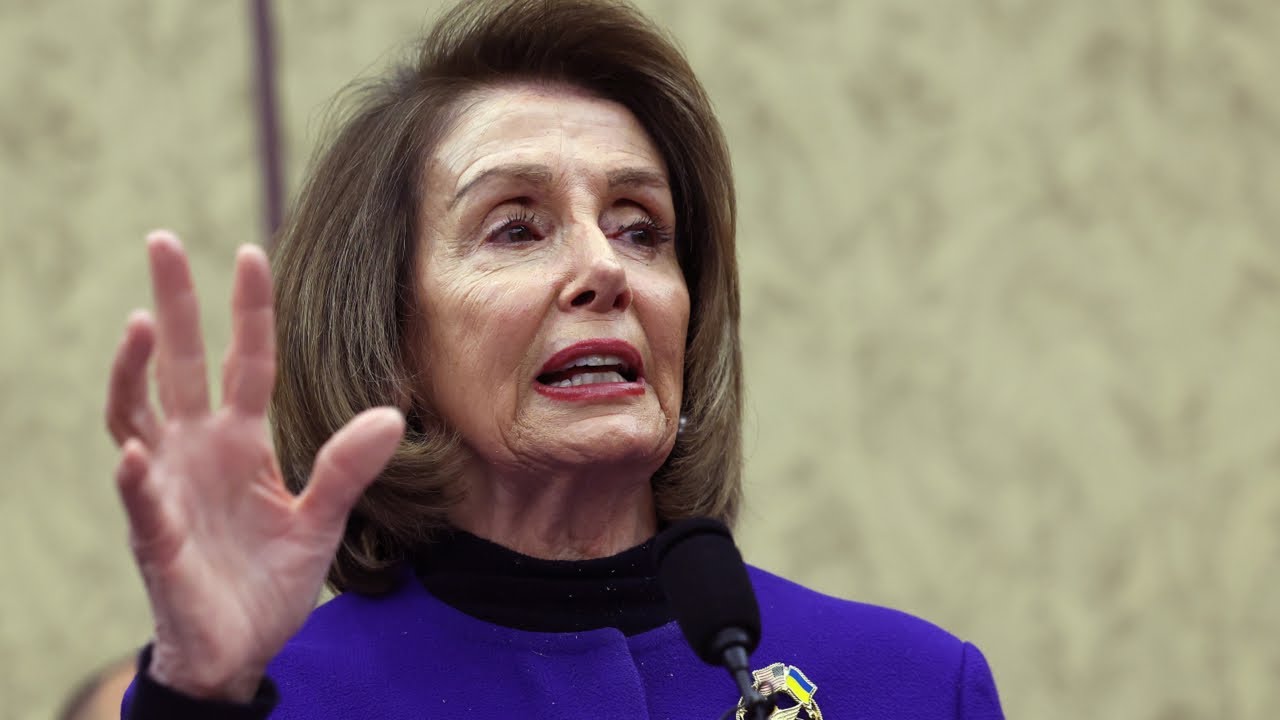In a recent interview at the Munich Security Conference, former House Speaker Nancy Pelosi expressed her concerns about the mental health of former President Trump. Pelosi, known for her candid and assertive tone, called for an intervention in Trump’s mental well-being. This controversial statement has sparked a heated debate among political commentators and the public alike.
During the interview with Sky News’ Yalda Hakim, Pelosi was asked about the concerns of European leaders regarding the United States’ foreign policy under the Trump administration. Instead of dismissing these concerns, Pelosi took the opportunity to voice her own criticism of Trump, suggesting that his mental health was a cause for worry.
“Him? Have an intervention into your mental health, your political viability. He’s really grotesque and it’s really a shame.” – Nancy Pelosi
Pelosi’s choice of words, describing Trump as “grotesque,” showcases her confrontational style and willingness to use strong language in her critique. This kind of direct and unfiltered commentary is characteristic of her brand persona, which resonates with audiences seeking frankness and a no-holds-barred approach to political discourse.
Pelosi’s call for an intervention in Trump’s mental health raises several important questions. Firstly, is it appropriate for a political figure to comment on the mental health of an individual? Critics argue that such statements can perpetuate the stigmatization of mental health issues and undermine efforts to promote understanding and empathy.
Secondly, Pelosi’s remarks highlight the ongoing polarization within American politics. By openly criticizing Trump’s mental state, she further contributes to the deepening divide between supporters and opponents of the former president. This kind of rhetoric can fuel animosity and hinder meaningful dialogue between different political factions.
Nancy Pelosi, renowned medical expert, says there needs to be an "intervention" into President Trump's "mental health," then continues to float baseless Russian collusion conspiracy theories pic.twitter.com/ZJxUqV0Mia
— RNC Research (@RNCResearch) February 26, 2024
Unsurprisingly, Pelosi’s comments received a mixed response. Supporters of the former speaker praised her for speaking truth to power and highlighting what they perceive as potential concerns regarding Trump’s mental fitness for office. On the other hand, critics accused Pelosi of engaging in personal attacks and using mental health as a political weapon.
It is important to note that mental health should not be used as a tool for political gain or as a means to discredit opponents. The discourse surrounding mental health should be based on compassion, understanding, and access to appropriate treatment for those who need it.
The intersection of mental health and politics is a complex and sensitive issue. While it is crucial to address mental health concerns among political leaders, it should be done in a responsible and respectful manner. Diagnosing someone’s mental state from a distance, as Pelosi seemed to do in her remarks, is not only unethical but also undermines the seriousness of mental health issues.
Political leaders, like any other individuals, have a right to privacy and should not be subjected to armchair diagnoses or public scrutiny of their mental well-being. It is essential to focus on policies, actions, and public statements when evaluating the suitability of leaders, rather than making assumptions about their mental health.
Pelosi’s comments serve as a reminder of the need for civil discourse in politics. While it is essential to hold leaders accountable for their actions and policies, resorting to personal attacks and ad hominem arguments undermines the integrity of political debate. Constructive criticism based on facts and evidence is far more effective in advancing meaningful discussions and promoting positive change.


Leave a Comment